Hello there, enthusiasts of knee health! Today I’m excited to delve into a topic that holds significance specifically when it comes to the well-being of our knees. The benefits of chicken cartilage for knees. In a world where joint discomfort and inflammation challenges we face daily exploring natural remedies takes us on an intriguing journey. So imagine putting on your hiking boots as we embark on an exploration of how chicken cartilage can contribute to maintaining joints – with a particular focus, on knees.
Within this article, we will reveal the secrets behind this overlooked ingredient found in our kitchens and its potential to bring about positive changes for our knees. We will discuss the value it offers and present scientific studies that support its effectiveness. Whether you are a fitness enthusiast or someone actively seeking solutions for knee-related concerns this in-depth look, into the benefits of bird cartilage is tailored for you. Have you ever considered how chicken cartilage might have played a role in your journey toward healthier knees? Let’s embark, on this captivating adventure together.
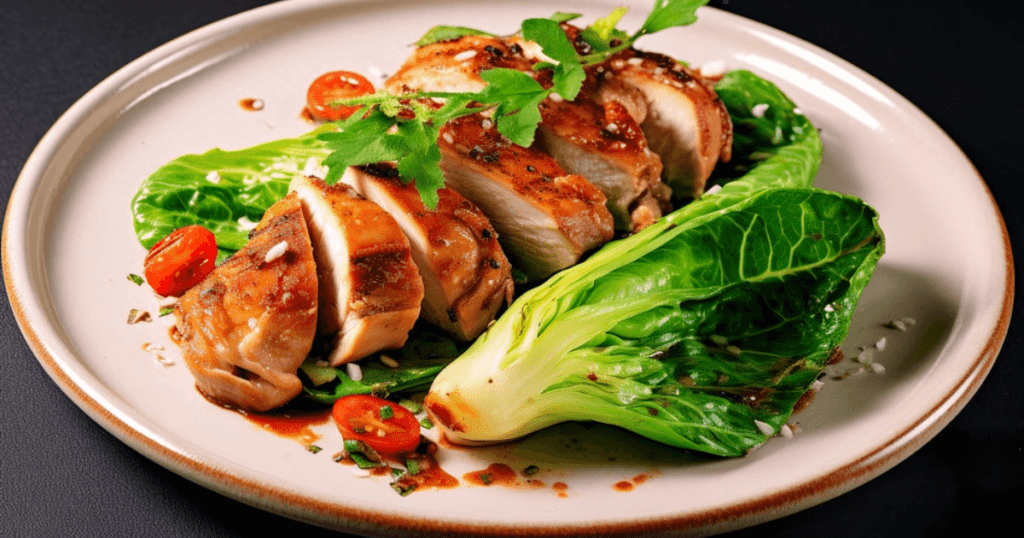
Introduction to Chicken Cartilage for Knees
Chicken cartilage, a form of connective tissue nestled within the joints of chickens, holds a treasure trove of advantages for our bodies, mainly our knees. Rich in collagen, the spine of structural support, chicken cartilage offers an herbal enhancement for joint fitness. This unassuming tissue also packs a punch with glucosamine and chondroitin, natural compounds renowned for their joint-supporting prowess. Harvesting chicken cartilage involves a meticulous technique at some stage in chicken processing, where it is carefully extracted, wiped clean, and subtle to eliminate undesirable factors. The result? A flexible product that can be eaten up as a nutritional supplement or seamlessly integrated into diverse culinary creations for its nutritional perks. Beyond its protein content, hen cartilage has proven its capacity to support joint health and relieve infection, in the end contributing to basic well-being. Yet, it’s critical to exercise caution in choosing chicken cartilage from reliable providers and ensuring it undergoes secure and hygienic processing. Prioritizing these elements is key to fending off capability fitness dangers associated with this promising natural treatment for knees.
Benefits of chicken cartilage for knees
Chicken cartilage is turning into more and more popular in the present days, as an option to promote better knee health. Packed with vitamins like collagen, glucosamine, and chondroitin this unassuming element plays a role in assisting the well-being of our joints. Collagen is well known for its ability to maintain structure while glucosamine and chondroitin work together to reduce inflammation and stimulate the growth of cartilage tissue. Research suggests that incorporating chicken cartilage supplements into your habits can result in advantages consisting of decreased joint aches lessened inflammation, stepped-forward mobility, and extended flexibility. Notably this natural treatment offers an alternative to techniques especially when it comes to addressing knee conditions like osteoarthritis. In addition to its residences chicken cartilage is easily digestible and absorbed by the body making it suitable for those with digestive concerns. With its sustainability and affordability chicken cartilage provides a cost-effective way to nurture knee health while embracing an approach, to overall well-being.

Scientific evidence supporting the use of chicken cartilage for knees
Numerous medical studies assessing the efficacy of chicken cartilage in treating joint aches and irritation were carried out. These researches have proven promising results, suggesting that chicken cartilage may be a safe and effective opportunity for traditional joint supplements and treatments.
A study featured in the Journal of Rheumatology revealed that those who were supplemented with chicken cartilage witnessed noteworthy upgrades in joint pain, stiffness, and overall function. Another have a look at, published in the Journal of Clinical Rheumatology, demonstrated the effectiveness of chicken cartilage in decreasing inflammation amongst sufferers grappling with rheumatoid arthritis.
In some studies, chicken cartilage has established similar or even superior effects compared to different joint dietary supplements like glucosamine and chondroitin. Furthermore, chicken cartilage stands proud as a natural source of collagen, a critical aspect for keeping healthful joint cartilage.
Scientific evidence together supports the perception that chicken cartilage is a possible alternative for addressing joint aches and infections. Nevertheless, similar to any compliment or remedy, it is critical to seek advice from a healthcare professional before incorporating it into your recurring.
How to incorporate chicken cartilage into your diet
Chicken cartilage brings a banquet of nutrients that can be incorporated into your daily life in a variety of ways. Some dietary founts of chicken cartilage embrace chicken bouillon, chicken paws, and chicken necks. You can also detect chicken cartilage supplements in health food emporiums and online.
When it comes to dosage recommendations, it’s crucial to counsel with a healthcare professional including any fresh supplements to your victuals. Notwithstanding, analyses have exhibited that appropriating 500mg to 1000mg of chicken cartilage supplements per day can donate benefits such as reducing joint suffering and soreness.
Knitting chicken cartilage into your fare can be as simple as adding chicken bouillon to your soups and stews or using chicken feet and necks to fabricate bone broth. This imbues nourishment with an assortment of benefits for well-being and mobility. Seeking the guidance of a doctor can ensure the right regimen for your needs. You can also try taking chicken cartilage supplements in capsule or powder form.
Overall, adding chicken cartilage to your diet can provide a range of health benefits and is a great way to support your joint and bone health.
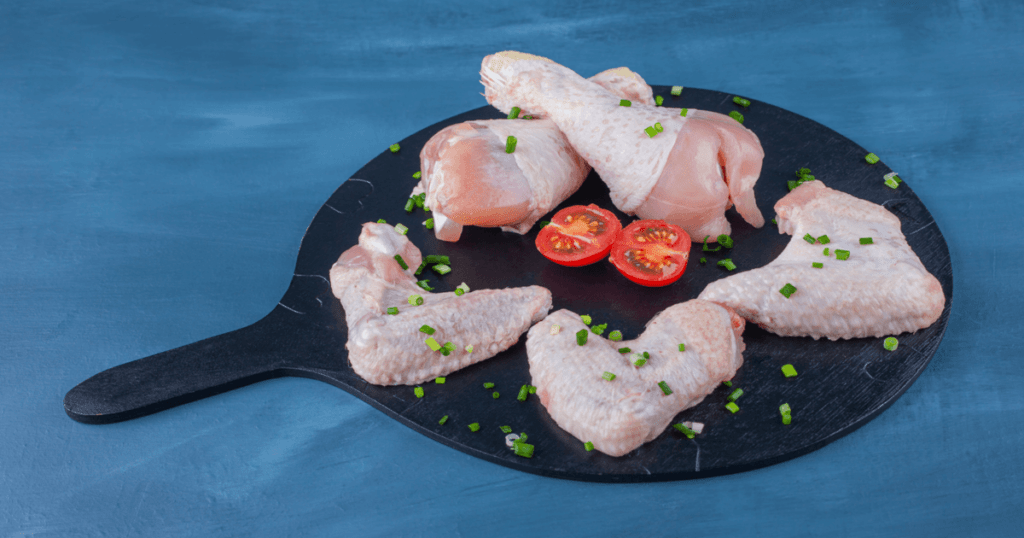
Precautions and potential side effects
Any new remedy or treatment can be considered, but a radical understanding of capacity side effects and hazards needs to be developed before delving into an initiation. This is peculiarly true when arising from drugs that have their denouement in poultry sources, but considerations are key as well. Firstly, you should be aware of possible drug interactions or existing health conditions. Seeking advice from your healthcare provider is of utmost importance before starting any new medicine especially when you are currently using other medicinal drugs likewise going through some pre-existing health issues. In addition, for those already having a diagnosed poultry allergy or are sensitive to chicken feathers or eggs, an added caution is needed. Reading the labels carefully and having a healthy conversation with your healthcare professional about the health risks will be proactive toward your health. This will make it possible for you to comfortably and safely use poultry-based medications as long as you follow these precautions while factoring in possible risks or side effects.
Chicken Cartilage and Cartilage Regeneration
Chicken cartilage is a tissue that gives cushioning and flexibility to the bones of a chicken. It is also usually made up of collagen, thus, being a protein that plays an essential role in healthy skin, hair, and nails.
However, the regeneration of cartilage is when repairing or regrowing broken or damaged cartilage tissue. This may be a challenging process because of the limited capability of cartilage to repair by itself. However, with breakthroughs in clinical generation experienced recently, novel research shows it is now possible carrying out regeneration of cartilage using stem cells, growth factors, and diverse techniques.
A fresh technique of regeneration of the cartilage involves the conversion of nonspecialized cells to a stem cell followed by application for treatment. When these cells are cultured, in a laboratory process laboratory, they are then implanted into the damaged cartilage tissue. The moment it is implanted in the human body, cells that develop from the implanted ones will develop and replace the destroyed ones while regenerating their appropriate tissues to replace the injured ones.
Another approach will be to stimulate the body’s cells to generate new cartilage through growth factors. Growth factors are proteins that are naturally produced by the human body as well as take part in regenerating tissues, as well as repairing tissues.
In brief, despite the huge optimism in the fact that cartilage regeneration might provide new treatments for people with conditions such as arthritis, sports injuries, and all sorts of justification wreckages, up to this point, it remains a relatively recent field.
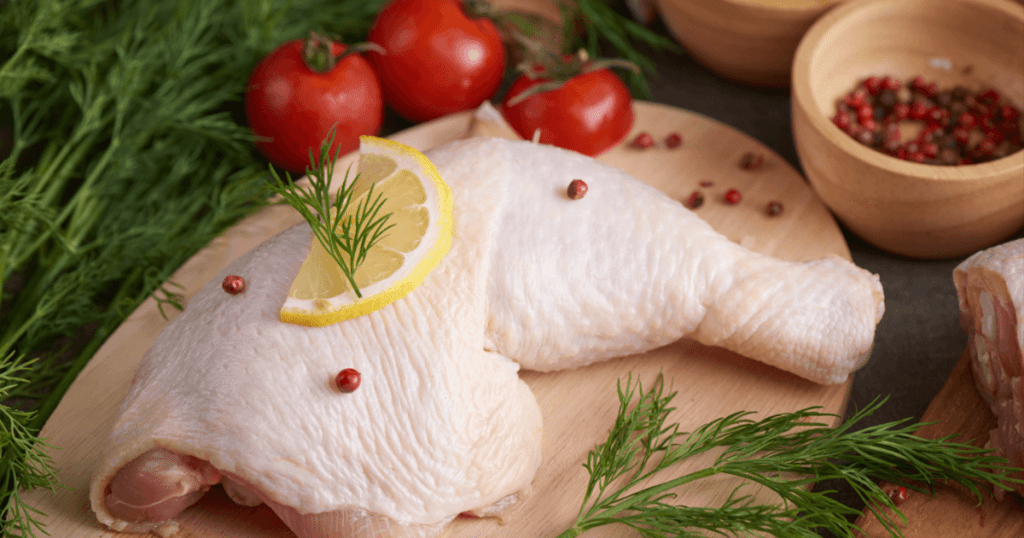
Comparing Chicken Cartilage to Other Joint Supplements
There are several alternatives to be had in the marketplace for joint supplements. But now not every supplement is made equally. Chicken cartilage is one famous complement that has grown to be greater famous in recent years.
Glucosamine and chondroitin along with numerous nutrients are observed in chicken cartilage. Other joint dietary supplements, which include those derived from cows or shellfish, additionally contain these nutrients. But chicken cartilage gives a few special advantages.
It is an ethical and sustainable supply of nutrients, to begin. Utilizing chicken cartilage for dietary supplements lessens waste due to the fact it’s miles a byproduct of the chicken enterprise. In addition, a lot of people would rather stay away from supplements made from shellfish because of allergies or moral dilemmas.
Another advantage of chicken cartilage is that it may be more effortlessly absorbed by using the body than different resources of glucosamine and chondroitin. This is due to the fact the vitamins in chicken cartilage are in an extra bioavailable form.
Of course, it’s important to note that joint supplements are not a cure-all for joint pain or arthritis. However, they may be a beneficial addition to a comprehensive treatment plan that consists of exercise, a healthy diet, and different treatment plans as recommended by a healthcare adviser.
In conclusion, even as chicken cartilage isn’t the only alternative for joint supplements, it does provide a few particular blessings that can make it worth thinking about. As with any supplement, it is essential to do your studies and talk to your physician earlier than adding it to your routine.
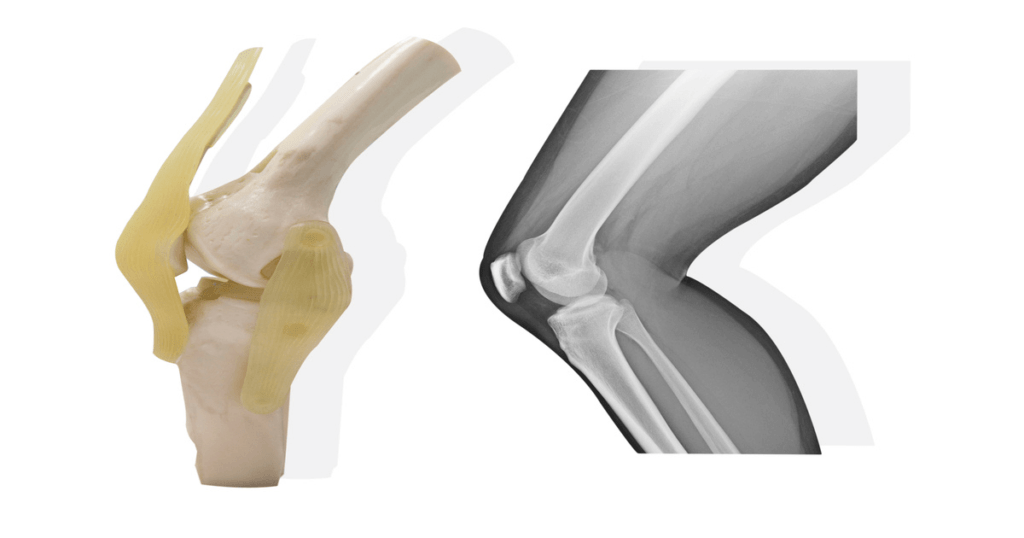
Types of knee lubricant injections
Knee lubricant injections, otherwise known as viscosupplementation, are done if other treatments failed great for osteoarthritis pain in the knee. They add cushioning and mix in with the viscous properties of the synovial fluid in the knee. Below are the substances that most commonly used in such injections:
Hyaluronic Acid Supplements: These kinds of knee lubricant injections are most common. There is hyaluronic acid present in synovial fluid naturally serving as cushion and lubrication to joints. The injections aim at the restoration of the normal balance of hyaluronic acid on the arthritic joint. Examples of those products are Synvisc (Hylan G-F 20), Hyalgan, Supartz, Euflexxa, Orthovisc and other absurdly simple-worded but foreign-sounding oil names.
Platelet-Rich Plasma (PRP): While not working strictly as a lubricant, PRP injections contain many growth factors in high concentrations that might assist the healing process and possibly work to some extent as a lubricating agent as well as effect an anti-inflammatory action.
Corticosteroid Injections: They are mainly anti-inflammatory injections but can result to indirect improvements in joint lubrication by reducing inflammation and accumulation of fluid in the joint hence, improving the movement of the knee.
The efficacy of this kind of treatment can vary from person to person and there are various recommendations and guidelines for usage. It is also important to note that the brand or the type of injection becomes chosen depending upon the individual demands of a patient, the severity of osteoarthritis, as well as desire of the treating doctor. Always consult your healthcare provider for the most accurate diagnosis and a tailored treatment plan for you.
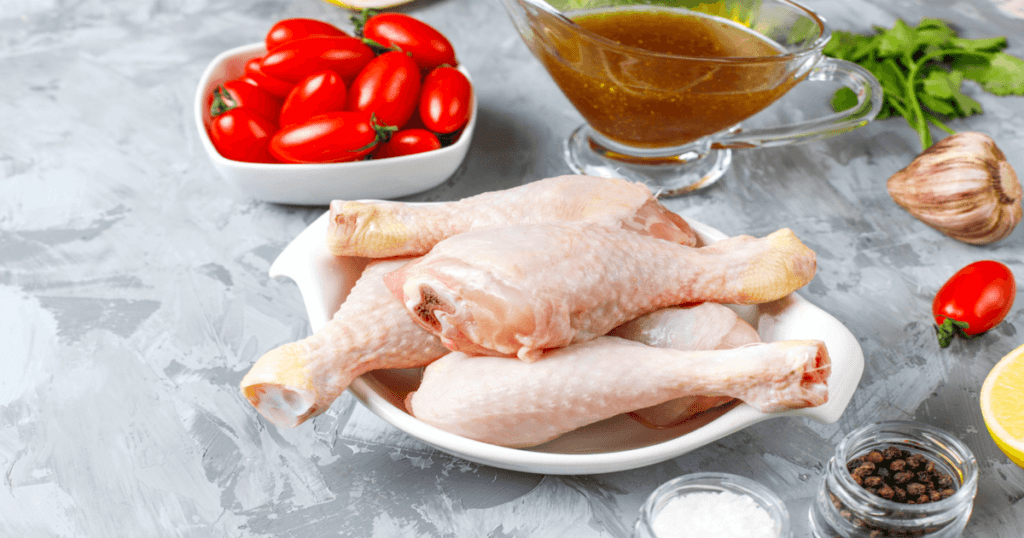
Expert Opinions on Chicken Cartilage for Knees
FAQs:
Is chicken cartilage good for your joints?
A: Most people trust that chicken cartilage is good for joint health. This is due to the fact chicken cartilage carries a variety of collagen, which is a key component of cartilage tissue. Collagen is what offers cartilage its power and versatility
However, there is limited scientific proof to aid the declaration that consuming chicken cartilage can help enhance joint health. Some studies have suggested that taking collagen dietary supplements might also assist in reducing joint aches and enhance mobility in human beings with osteoarthritis, however, extra studies are wanted to completely apprehend the capacity benefits.
It’s well worth noting that chicken cartilage is not a magic cure for joint problems. Maintaining a healthy weight, staying lively, and eating a balanced diet are all crucial factors in keeping your joints healthy. If you are experiencing joint pain or stiffness, it’s always a good concept to speak along with your medical doctor to decide the best route of motion.
Is chicken good for knee pain?
Chicken is a very good lean protein and can, therefore, facilitate good health, but when connected to knee pain, it may not necessarily be the right food for one to eat. Some studies have shown that a diet with plenty of animal proteins, including chicken, can result in inflammation and therefore give rise to pain and discomfort located at the level of the joints. Besides that, chicken can also be high in saturated fat and cholesterol which increase heart disease risk along with other related issues. Taking more anti-inflammatory foods in the form of fruits, vegetables, whole grains, and nuts while managing intake of knee pain causing foods can help decrease suffering from this condition. t would be appreciated to consult with a healthcare professional for personalized dietary recommendations.
What are the side effects of chicken shots for knees?
Chicken shots for knees also are called hyaluronic acid injections. These injections are used to deal with osteoarthritis, that’s a condition that causes the cartilage inside the joints to break down. The side effects of those injections are normally slight and temporary. The maximum usual side effect is aches and swelling on the injection site. Some people may also enjoy warmth, redness, or itching on the site. In some cases, people may additionally feel an allergic reaction to the injection. If you feel any unusual signs or symptoms after receiving a chicken shot to your knees, then you should contact your medical doctor without delay. They will assure you to determine if your symptoms are related to the injection or if they are because of another underlying situation.
Is cartilage OK to eat?
Cartilage is good to eat, a source of vitamins. It is soft tissue that is found in the joints of a body and other parts of the body. It contains collagen, a protein responsible for the body’s structure and support. Correctly cooked cartilage may be inculcated into foods such as soups, stews, and broths while others just take it raw. However, it is important to note that cartilage can be tough and chewy, so it may not be suitable for everyone’s taste. Moreover, the cartilage must be cleaned and prepared beforehand, to avoid any related health issues.
Does chicken cartilage have collagen?
Yes, some collagen is contained in chicken cartilage. Collagen accounts for one of the proteins found in the connective tissues of animals, and chickens are no exception. Chicken cartilage turns out to be a rather good source of collagen, as well as of other important nutrients like glucosamine and chondroitin. Such nutrients are usually sourced in dietary supplements used to support joint health, as they do assist in ensuring that cartilage remains healthy and intact in the body. So be it to support your joint health through a tasty chicken dinner, or by eating chicken cartilage-based supplements, throwing some extra cartilage in the pot might be worth it.
How much protein is in chicken cartilage?
A lot of proteins that are also found in cartilage from chicken bones. According to the estimations, chicken cartilage may consist of a protein by dry weight at about 60 %-70%. It’s a protein consisting of many kinds of amino acids, among them proline, glycine, and hydroxylproline. Partly for this reason and partly because it is a rich source of protein, with added glucosamine and chondroitin-turf ingredients commonly promoted as nutritional supplements for the joints of humans and other creatures-chicken cartilage has always been popular. Just remember, however, the amount of protein is very different in chicken cartilage depending on the variables of chicken age and region within the cartilage.

Conclusion:
In brief, supplements containing chicken cartilage can be of service in maintaining your knees. Chicken cartilage, on the other hand, contains natural active substances collagen and glucosamine that naturally reduce joint pain and swelling and have a positive impact on joint mobility. However, it is best to consult a professional healthcare provider prior to taking any new supplements to avoid negative interactions with other medicines. Therefore, those who desire to find a better method for solving this problem may as well give chicken cartilage supplements a try while under healthcare guidance.
You may like to read this blog post: Chicken Cartilage in Chinese
